The traditional Bunpimay New Year program was meticulously organized, dignified, and fully observed with traditional rituals, creating a cozy, warm, and joyful atmosphere. At the event, Laotian exchange students came together to revisit the history of the traditional New Year and introduce the traditional cultural aspects, costumes, and the country and people of Laos through various cultural performances and distinctive fashion shows.
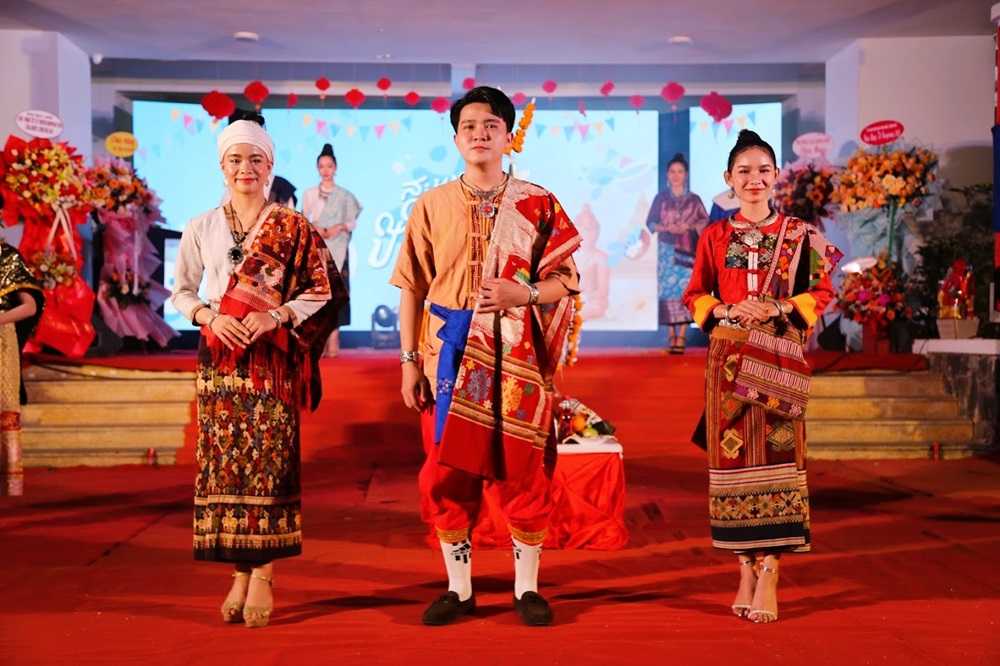
The fashion show "Traditional Beauty of Sinh - Salong with Laotian Girls and Boys" performed by Laotian exchange students.
Festivals in Laos are often referred to as "Bun". Bun means to make merit, to make merit in order to receive blessings. The Bunpimay festival is the New Year celebration in Laos. Every year, around mid-April (from the 14th to the 16th according to the Buddhist calendar), people from various ethnic groups in Laos enthusiastically celebrate the traditional Bunpimay New Year to pray for a year of favorable rain, peaceful winds, and good health and luck for every household and individual.
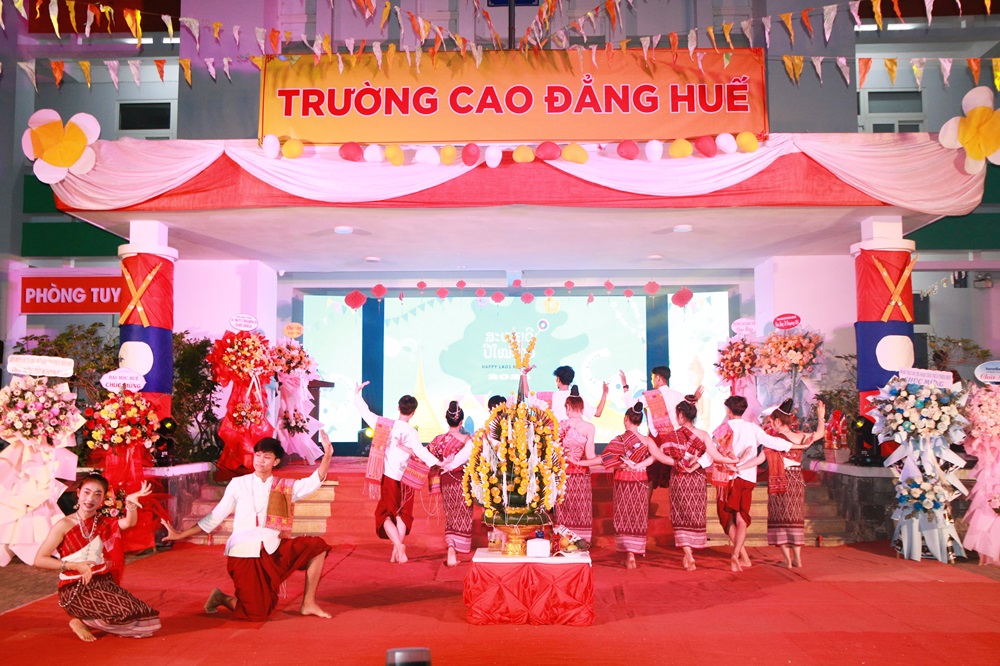
The Bunpimay festival typically lasts for three days. On the first day, people prepare scented water and flowers. In the afternoon, villagers gather at the temple to make offerings to the Buddha, pray, and listen to sermons by monks. They go to the temple to pray for health and happiness for the whole year. Then, they parade the Buddha statue into a special pavilion for three days and open it for people to bathe the Buddha. The scented water, after being poured over the Buddha statues, is collected and taken home to sprinkle on themselves for blessings. The second day is not counted because it is the transition between the old and the new year. The festival begins on the last day with lively activities everywhere. Before splashing water on each other, people usually exchange good wishes. To show respect, younger people splash water on older people to wish them a long life and prosperity. Friends splash water on each other. They not only splash water on people but also on houses, altars, animals, and tools. Laotians believe that water helps wash away evils, diseases, and wish for a new year of longevity, cleanliness, and health. Whoever gets wet a lot is considered to have more happiness.

The water splashing ritual to wish for blessings and good luck to all participants
During the program, Laotian exchange students received flower bouquets and congratulations from the Consulate General of Laos in Da Nang City, representatives of the leadership of Thua Thien Hue Province, the Department of Foreign Affairs, the Department of Labor - Invalids and Social Affairs, Hue University, and Hue College where they are studying, along with a lot of attention from organizations, units, and businesses in Thua Thien Hue Province.

Mr. Souphanh Hadaoheuang, Consul General of the Lao People's Democratic Republic in Da Nang City, presented flowers and gifts to congratulate Laotian exchange students at the program.
Prior to that, Hue College organized sports activities to celebrate the traditional Bunpimay Festival 2024. At the event, the school's Board of Directors awarded prizes to teams that excelled in sports such as football, volleyball, basketball, shuttlecock kicking, and badminton.

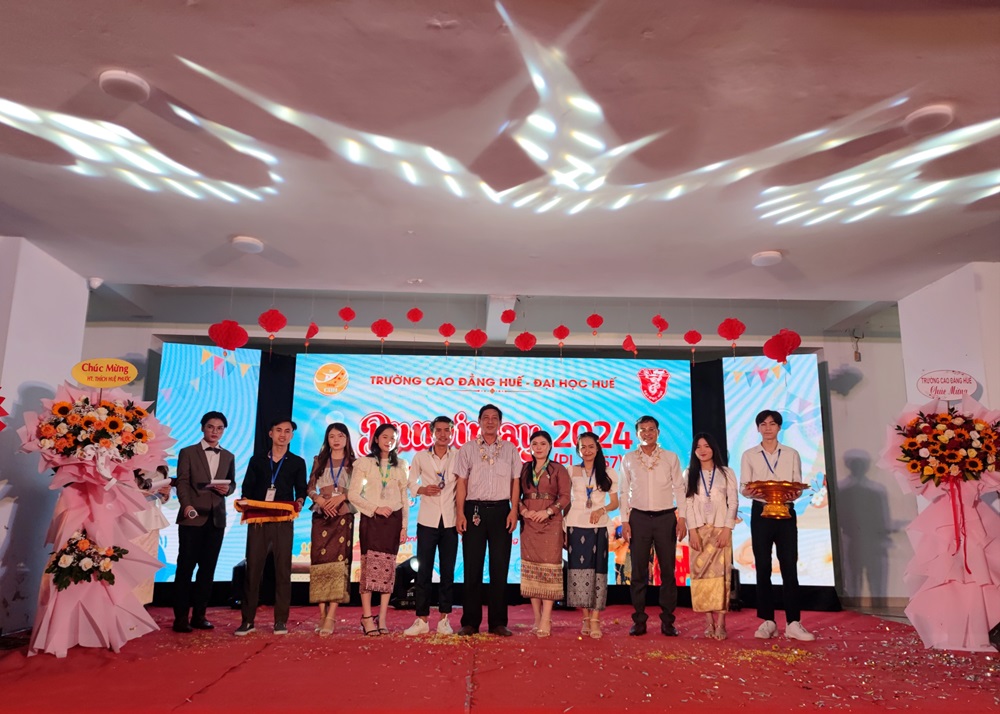
Representatives from the Board of Directors of Hue College presented prizes to Laotian exchange students at the program.
On the traditional Bunpimay New Year of Laos, guests visiting homes are bound with a green or red thread around their wrists by the host, symbolizing happiness and good health. Throughout the three days of the festival, those with more threads tied around their wrists are believed to have more luck for the entire year. At the event, a large flower arrangement was placed in the middle of the stage, with small colorful threads tied to its branches to perform the ritual of seeking luck, tying wrist threads, a unique feature of Lao culture. Everyone sat around to perform the luck ritual, then tied threads around each other's wrists to wish for health, luck, and success.
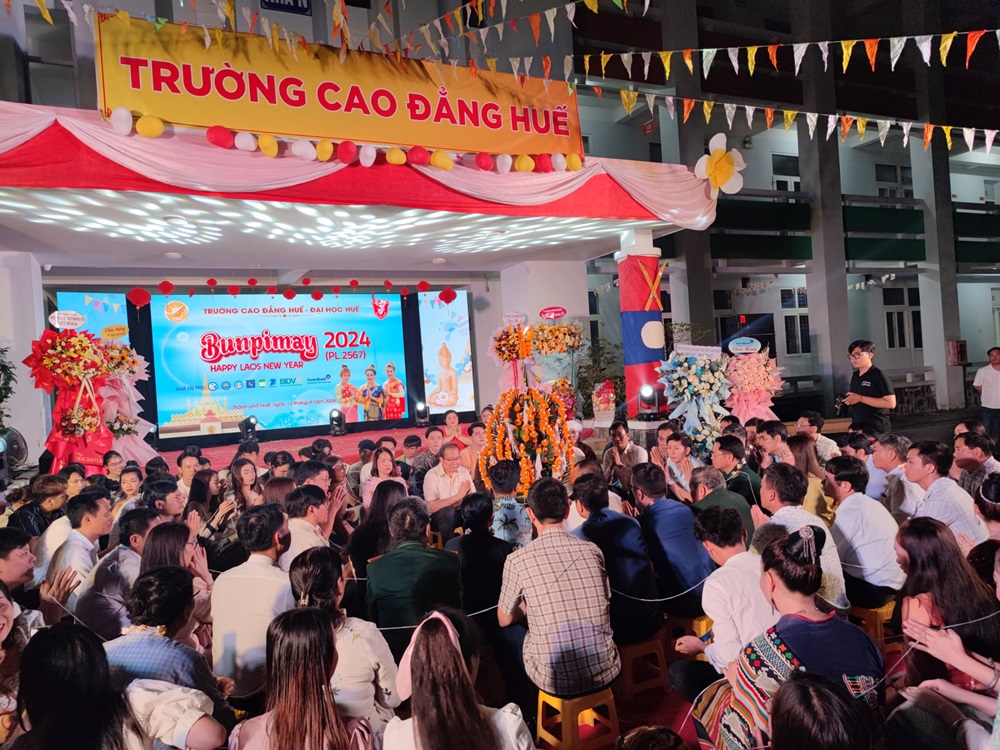
The ritual of seeking luck and tying wrist threads was solemnly and warmly conducted at the program.
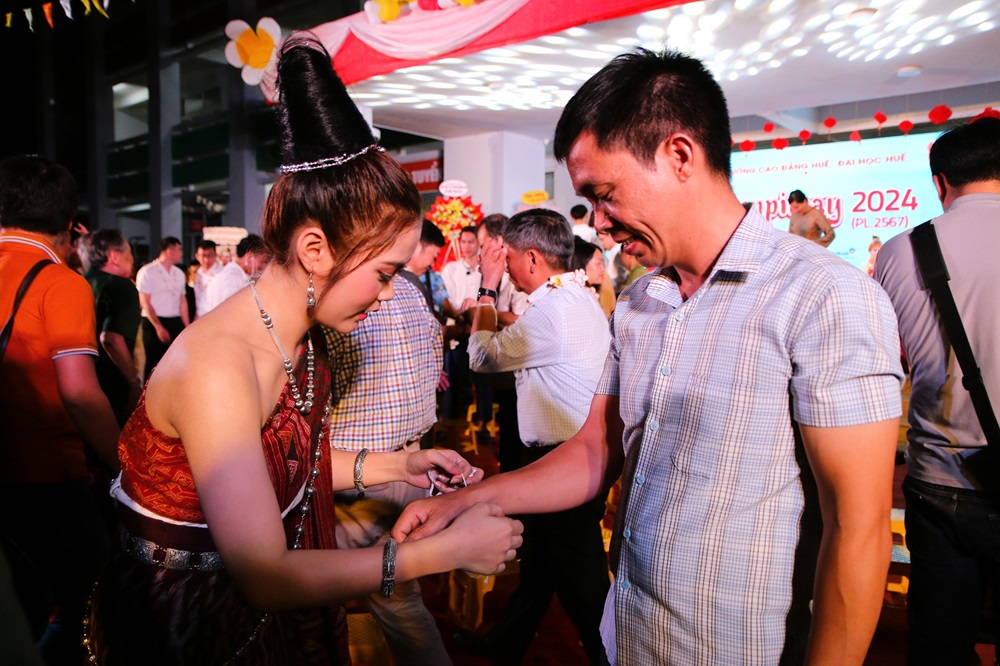
The Lao exchange students tied wrist threads for the delegates attending the program, conveying New Year wishes for luck and prosperity.
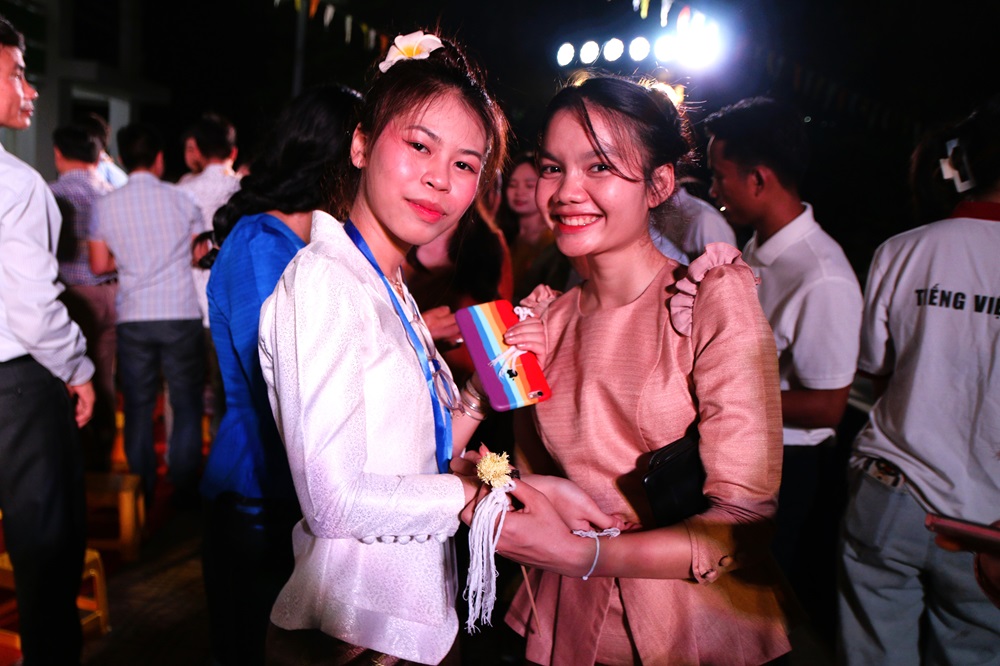
Those who have many threads tied around their wrists are considered to be the ones who will encounter luck throughout the year.
The program aims to enhance the traditional friendship education between the two countries of Laos and Vietnam (September 5, 1962 - September 5, 2024), in commemoration of the 62nd anniversary of the Establishment of Diplomatic Relations and the 47th anniversary of the Signing of the Treaty of Friendship and Cooperation between Vietnam and Laos (July 18, 1977 - July 18, 2024). At the same time, it helps the Lao exchange students, despite studying and living away from their homeland, to celebrate Bunpimay New Year in Hue as if they were in their own homeland, creating a warm and joyful atmosphere, thereby enhancing their unity and enthusiasm for learning.
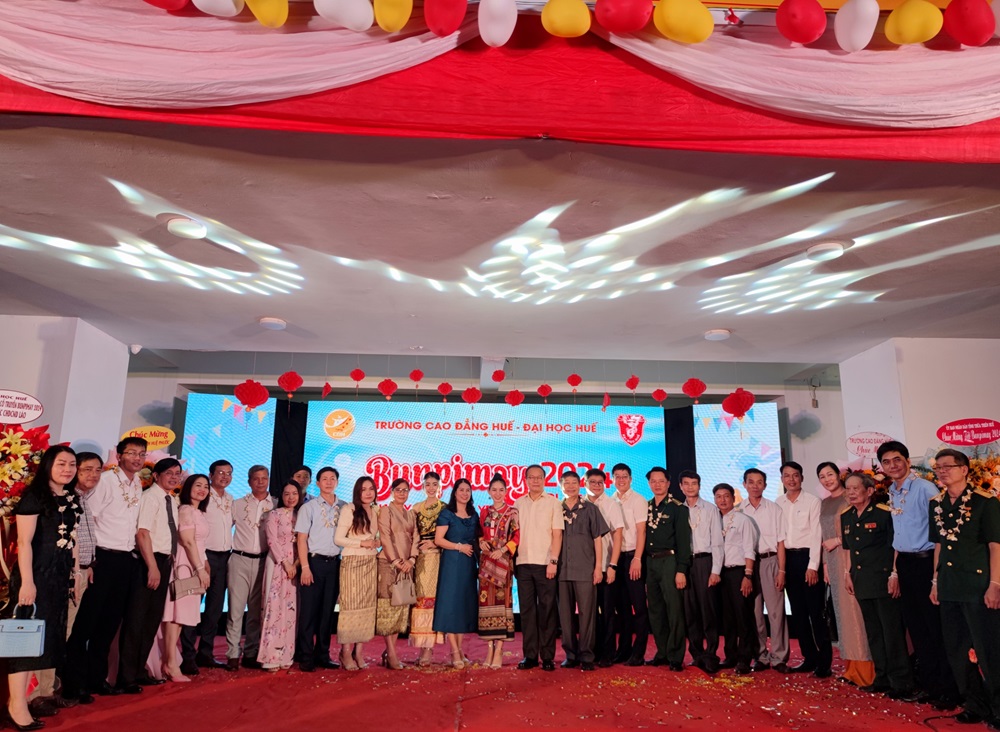
Delegates take photos with representatives of Lao exchange students after the program.